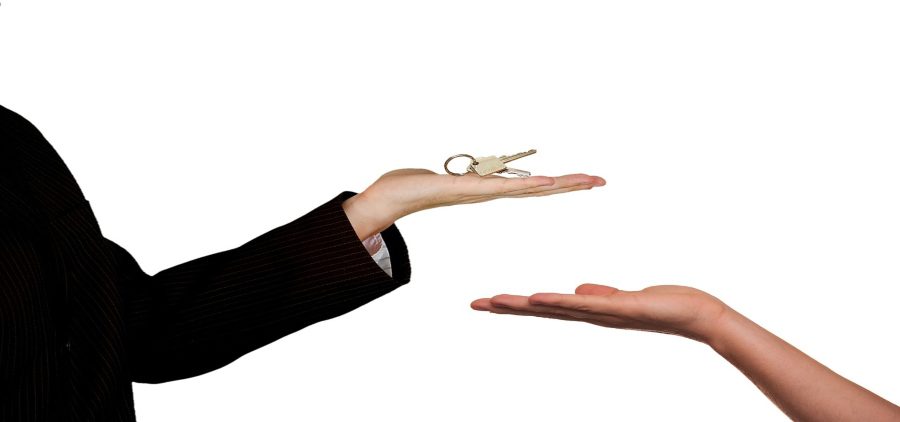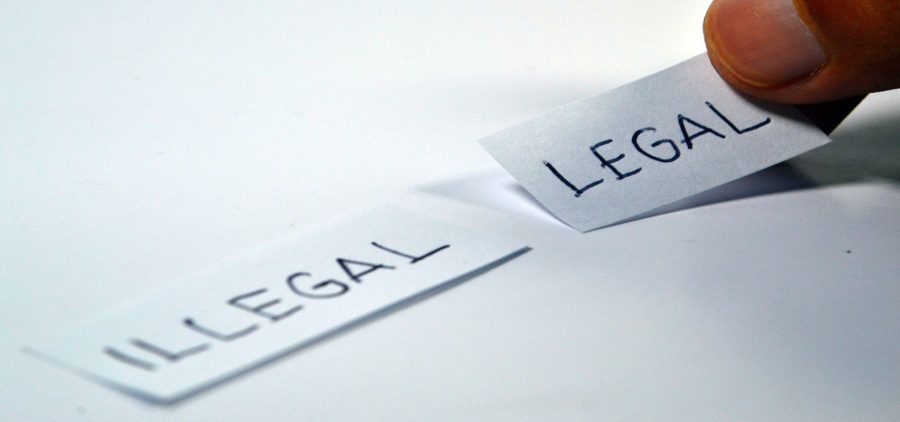Like all occupations, there are responsibilities you have as a landlord. Of course, there’s the part where you collect rent from your tenants, answer calls all day, meet new people, and so on, all of which somehow makes this profession great, despite the challenges.
But you also have a responsibility to your tenants, which is what we’re going to lay out in this post. As tenants pay their rent every month, they also expect certain things from you as well.
Thankfully, the Residential Tenancies Act has all the details in regard to your landlord’s responsibilities in Ontario. Although the responsibilities may seem cumbersome at times, following the rules has plenty of advantages for you, namely finding and keeping great tenants, reaping generous rewards, and avoiding potential problems.

What are the responsibilities of my landlord?
Owners must ensure that their buildings are safe, clean, and well-maintained. They must provide security, heat, hot and cold water, and good lighting. While the responsibilities of tenants are:
- Following building and housing codes
- Keeping the unit safe and sanitary
- Disposing of garbage
- Maintaining plumbing fixtures
- Properly operating all plumbing and electric fixtures
- Maintaining appliances supplied by the landlord
- Not damaging the unit.
Landlords must follow all building codes, make necessary repairs, and clean common areas. They must also ensure that essential services like water, electricity, and heat are working correctly. Landlords must provide proper trash receptacles for their tenants and must supply running water.
Landlord Responsibilities in Brief
Put simply, as the person who leases the property to a tenant; you are expected to provide a habitable unit for them. To be considered habitable, the property has to be fit for a person to live in, be free from defects or hazards, and be compliant with safety, health, housing, and maintenance standards.
Landlords are responsible for ensuring their tenants have a safe and clean living place. This includes adhering to all building codes, repairing any damage, keeping common areas clean, and ensuring the property has running water and trash receptacles.
Even though there are no explicit legal definitions of what uninhabitable living conditions are, generally speaking, anything that makes a living in the rental unit or premises impossible would qualify as inhabitable. Examples include:
- Faulty or dysfunctional plumbing system or gas.
- Broken/missing windows or doors
- Default electrical outlets
- Mould, leaking roof, or cockroaches,
- An unclean building and environment
- Messy grounds
More important for you to note is that if you fail to provide habitable living conditions to your tenant, they can sue you, and if found to be negligent, the court may award the tenant damages by lowering the rent they pay to you.
No one wants to deal with such a situation! To avoid it, the Residential Tenancies Act lays out basic landlord responsibilities. They include:
Repairs
Repairing and maintaining the rental unit is part of your duty as a landlord. This ranges from the electrical, heating, and plumbing systems to appliances, roofs, walls, windows, doors, lighting, locks, patios, pools, and so on.
It doesn’t matter if the tenant knew about the problems in the home before signing the lease. Tenants are only responsible for the damages caused by them or their guests.
Thankfully, it’s not a must to replace the damaged item(s) with a new one. You could use a used item, provided it works properly.
A common question asked by many tenants is “how long does a landlord have to fix something in Ontario?”
Well, the landlord-tenant act in Ontario requires you to do that within a reasonable time, failure to which a tenant is allowed to take the next action, which is to report or file an application with the Land and Tenancies Board.
Maintaining The Property
You are expected to keep the rental property/premises clean and safe. This includes places such as the halls, lobby, pool, elevator, garage, and parking lots, just to mention but a few. You are also required to take measures that will keep things like cockroaches, mice, and other related creatures away.
Property Standards
Before you start managing any property, it’s your duty as the landlord to ensure the property is legal. This means that the unit should meet the safety, health, housing, and maintenance standards as set out in the municipal by-laws and provincial maintenance standards.
If it doesn’t meet those standards, you have the option to renovate it before renting it out if you really have to. Keep in mind that renting out a unit or space that doesn’t comply with the legal requirements denies you the chance to enjoy the same protection as those who rent legal units.
Also, if you build an illegal property and it’s discovered, you’ll be forced to part with a fine and even get rid of the property.

Vital Services
Vital services include things like electricity, gas, heat, fuel, and cold/hot water. In the case of heat, it should be provided during the time of the year when it’s needed. That includes from September 1st to June 15th. The heat should be kept at 20 degrees Celsius. Some local governments have set a higher standard so check with yours to find out the required rate.
If you, as a landlord, provide vital services to your tenant, you are not allowed to withhold a reasonable supply of either, even if your tenant’s rent is overdue or they have damaged your property. In the event you cut off the service(s), or they are cut off because you failed to pay the utility bill, the tenant can sue you for withholding the service.
You are also not allowed to interfere with any of the vital services if the lease states that the tenant must arrange to have one or more of those services.
Entering A Rental Unit
If you plan to get into a property or inside a rental unit to inspect it for maintenance issues, make repairs, or to replace something, you are required to issue the tenant a 24-hour notice in written form. Include in the notice the reason why you want to enter the rental unit, the date you will enter, and the time.
In addition to what we’ve mentioned, you’re also required to do the following:
- Get rid of the garbage or arrange for it to be disposed of on a regular basis
- Repair any damage you may have caused to the property deliberately, due to neglect, or during repairs and maintenance works.
- Issue the tenant with a copy of the tenancy agreement or lease plus your address and legal name. If they request rent receipts, you are expected to provide one to them. All these documents should be given free of charge.
Key Takeaways for Landlords
Being a great landlord is way more than just collecting rent every month. It’s possible to have attractive properties in nice locations but lack tenants simply because of your reputation as a landlord who doesn’t do what’s expected of them, like performing repairs and maintenance, providing vital services, or not disposing of garbage.
So, if your goal is to become a successful landlord, make sure you know, understand, and apply the landlord responsibilities in Ontario. Also, get yourself tenants that have properly been vetted by a reputable Toronto property management company, as that will you make your work way easier and trouble-free.
Want to learn more about how we do property management at Buttonwood? Check out our simple fee schedule, https://buttonwood.ca/services/residential-property-management/.



